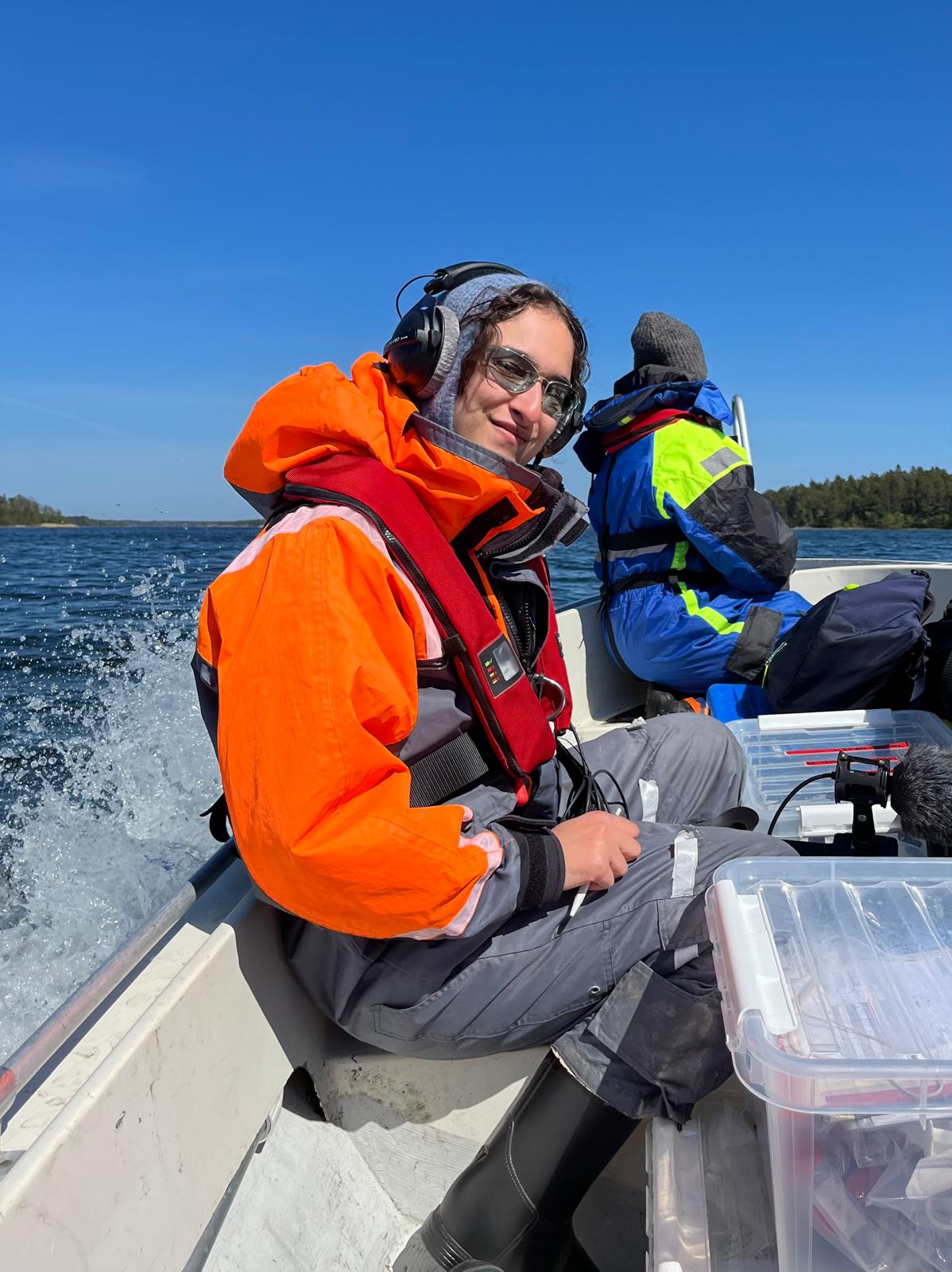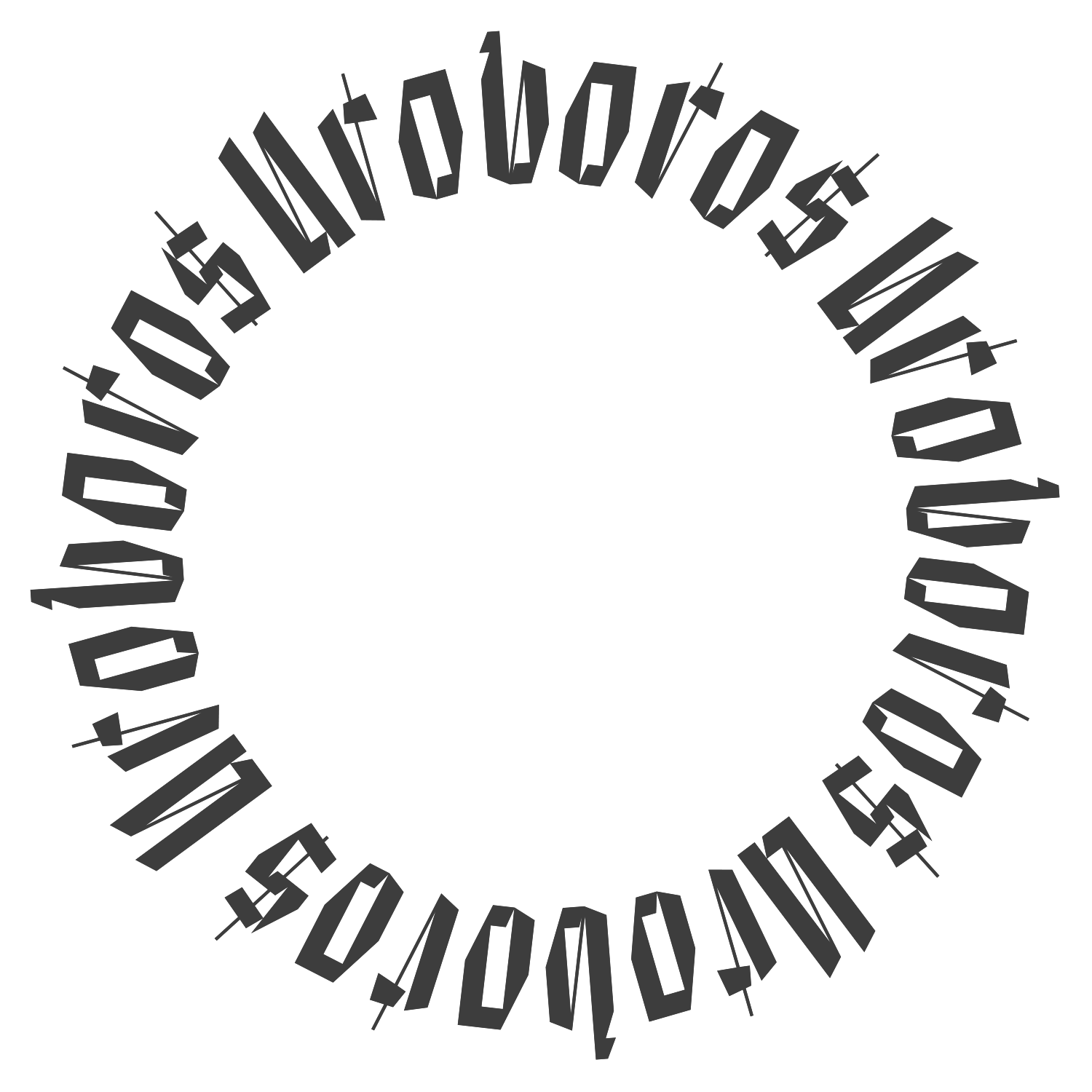
Amphibia
A muffled sound of engine can be heard in the distance, suddenly all the thin particles, until then resting on the seabed, are resuspended, absorbing the rays of light, plunging the scene into darkness. Snorkelling her way out of the cloud of sediment, India swims back to shore. She’s firmly holding two metal bottles in her arms. Her drysuit is acting as a waterproof clumsy outer skin, covering her, head to toe. Her body is tired, her mind drifting.
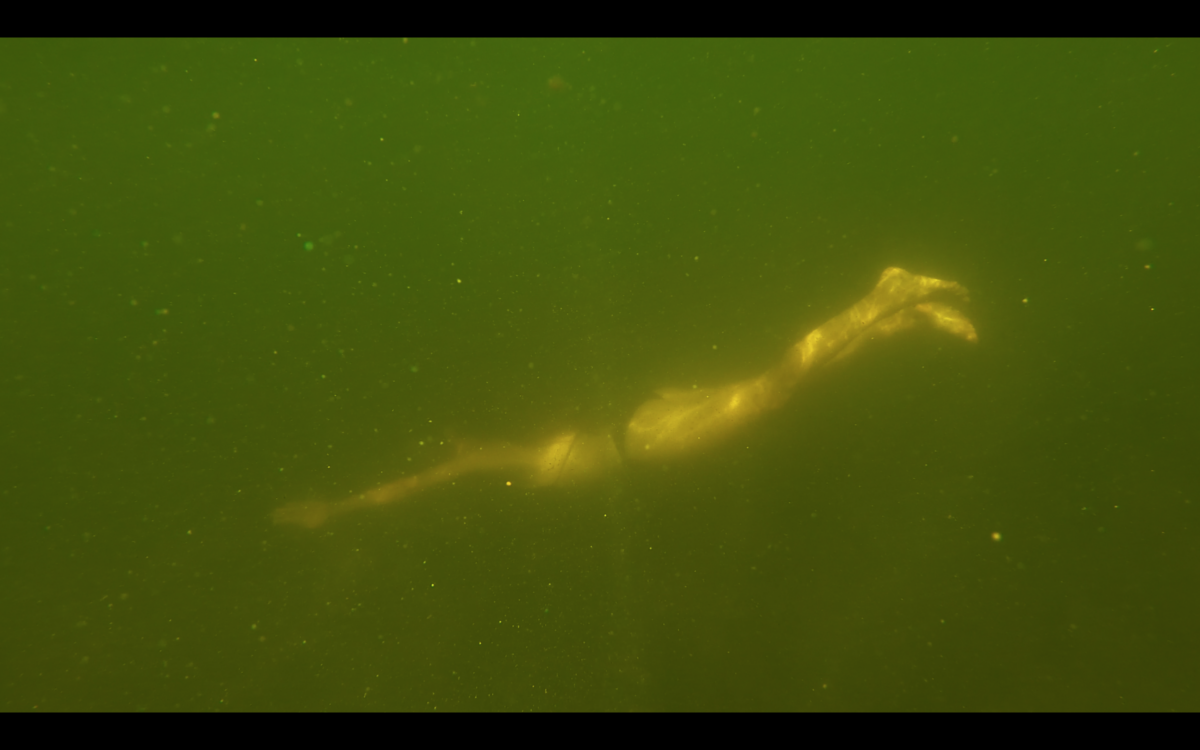
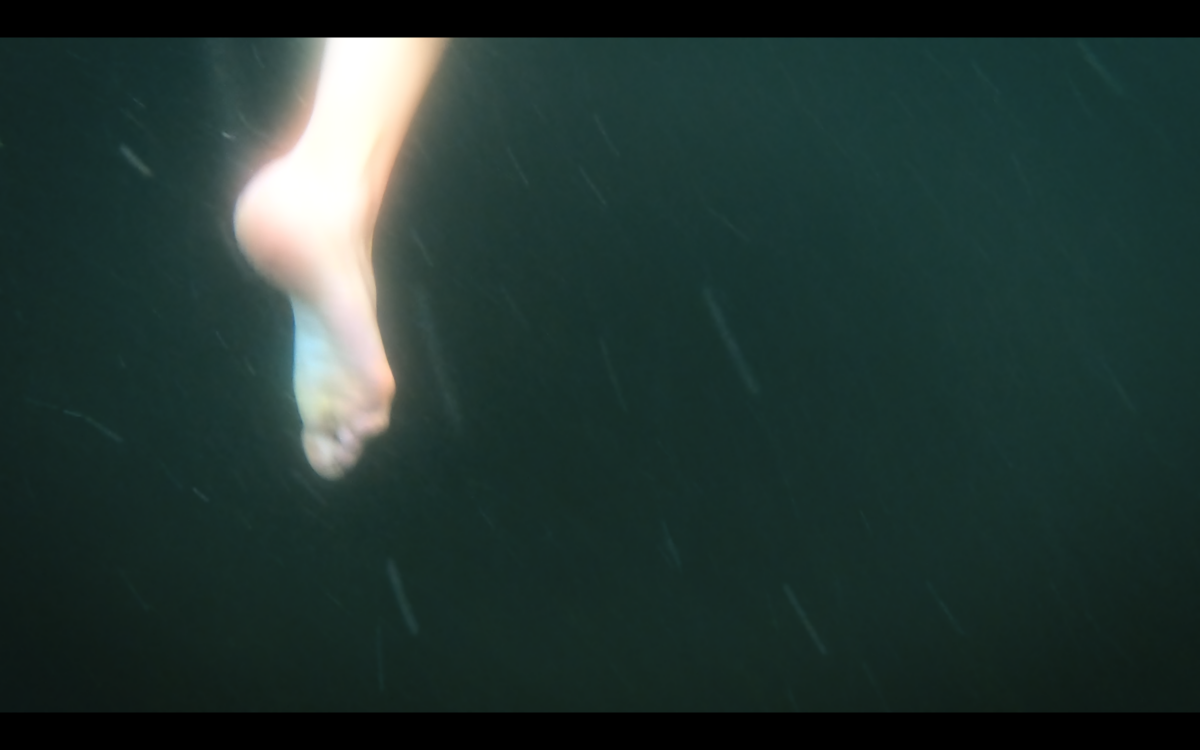
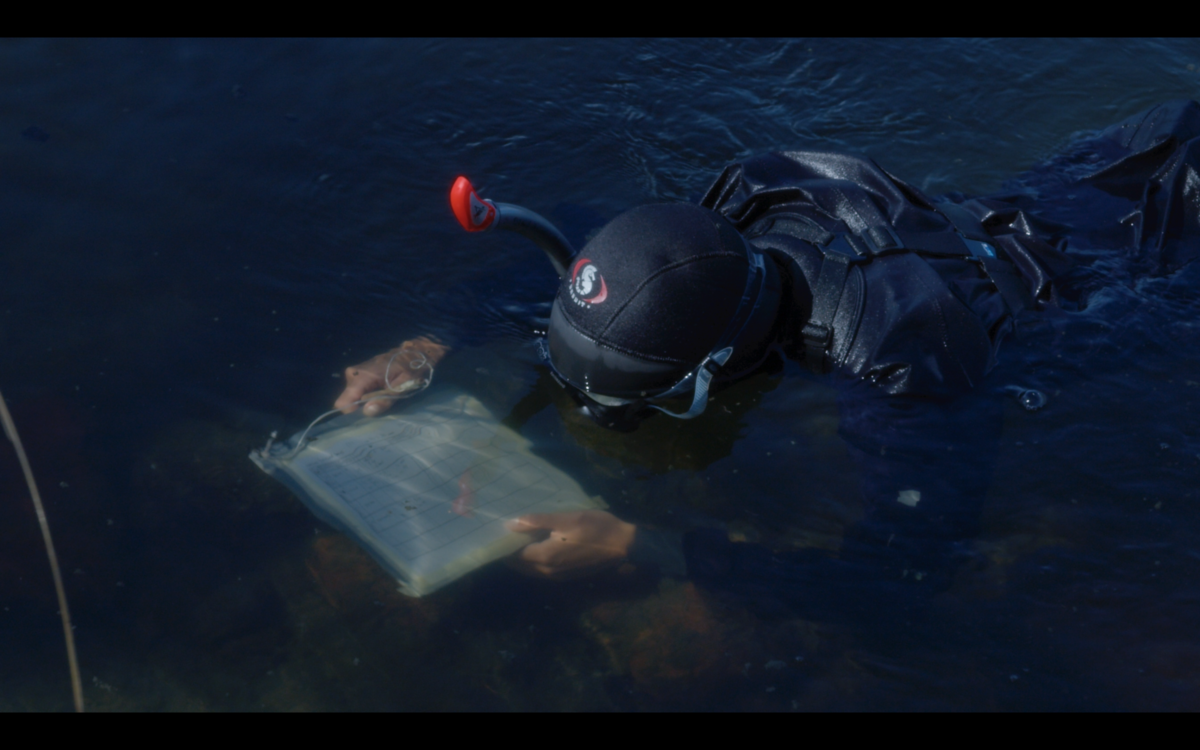
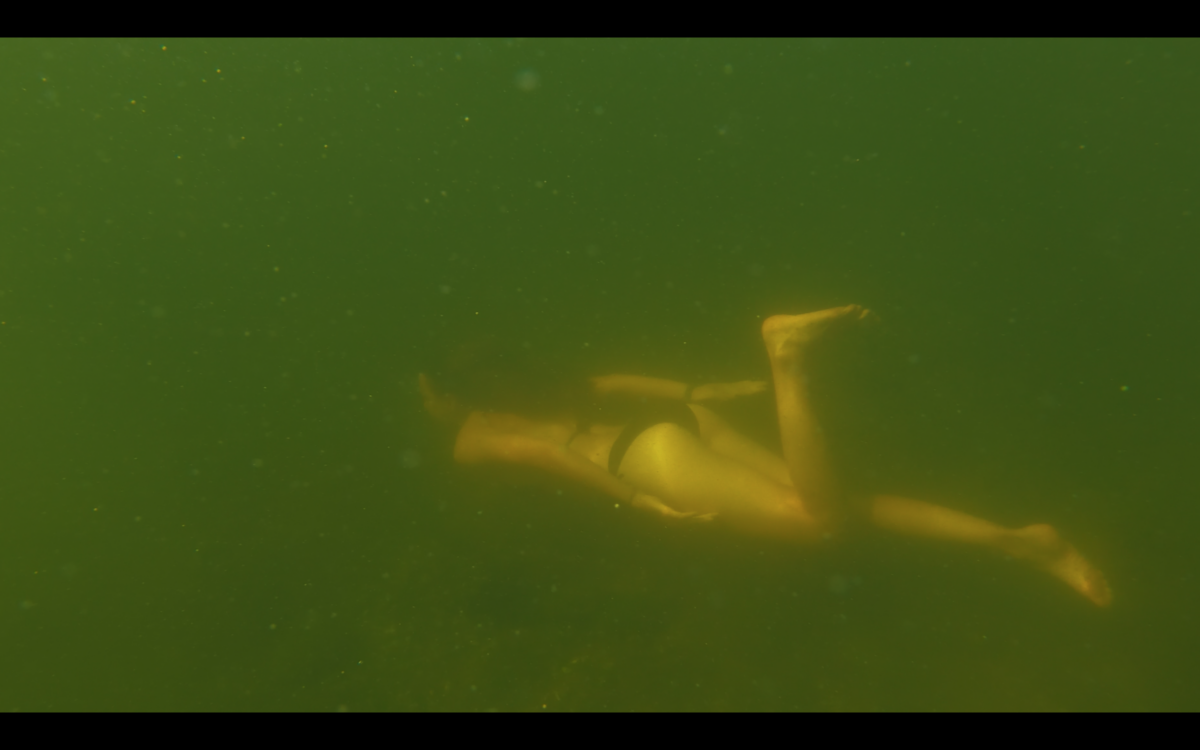
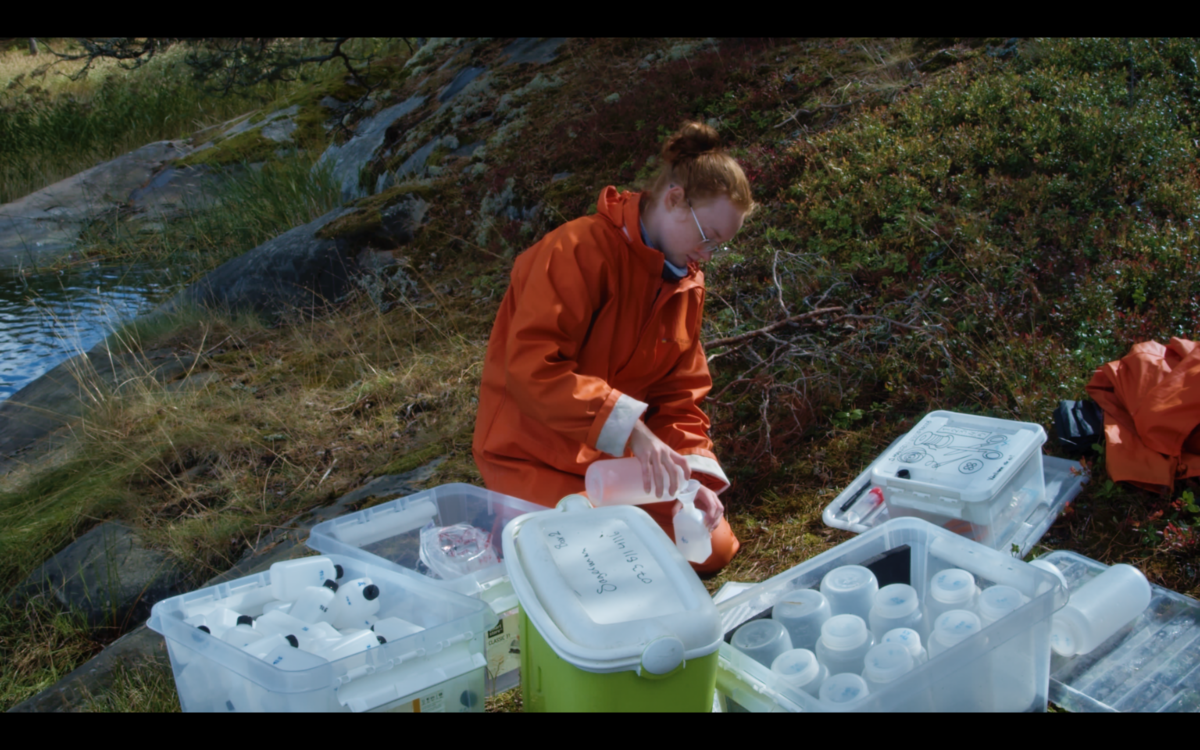
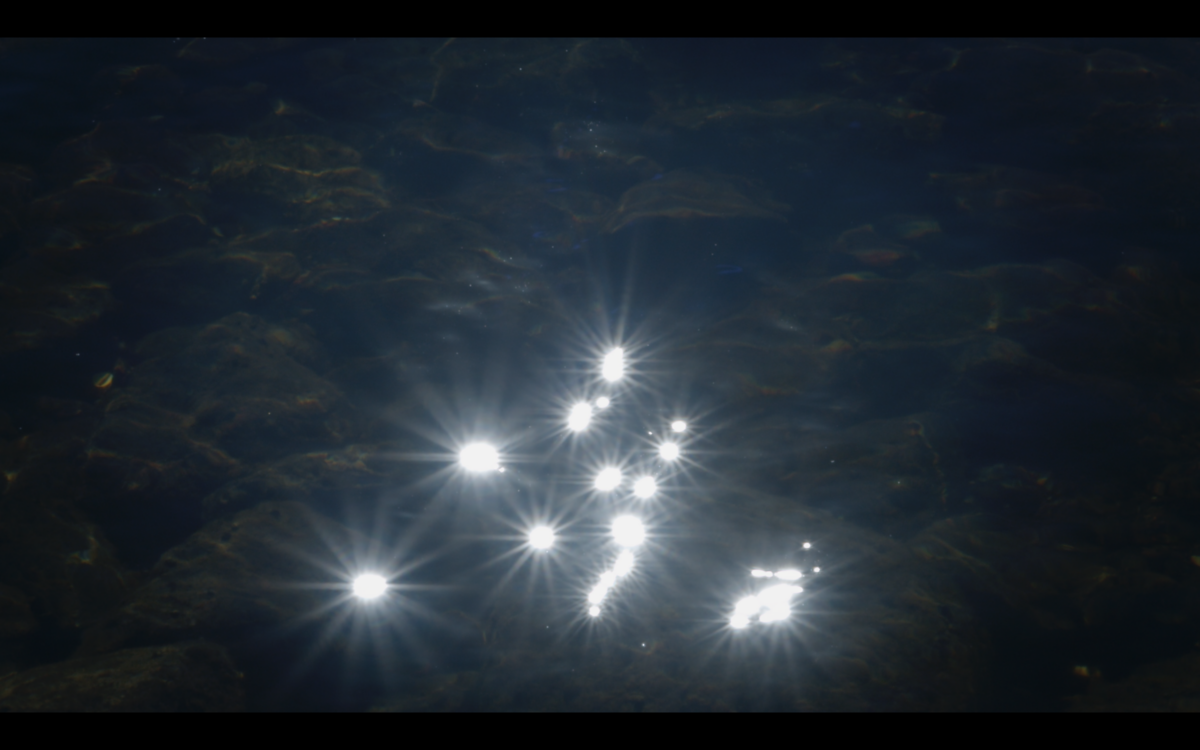
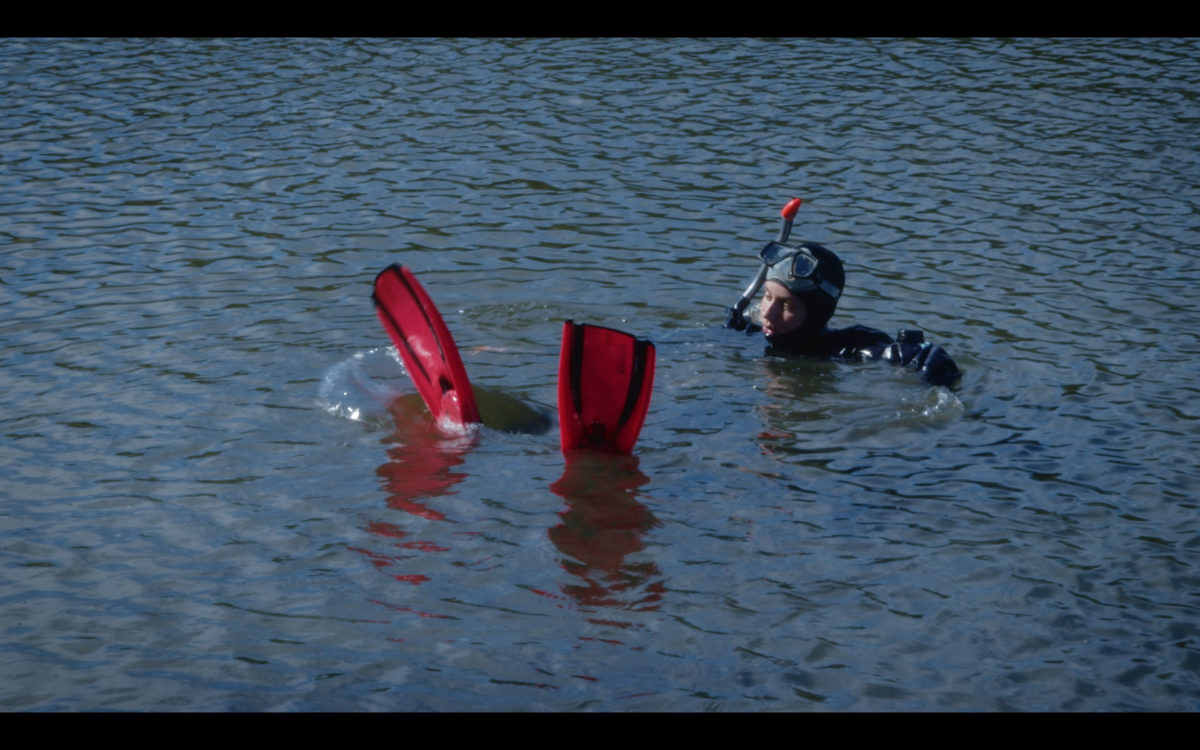
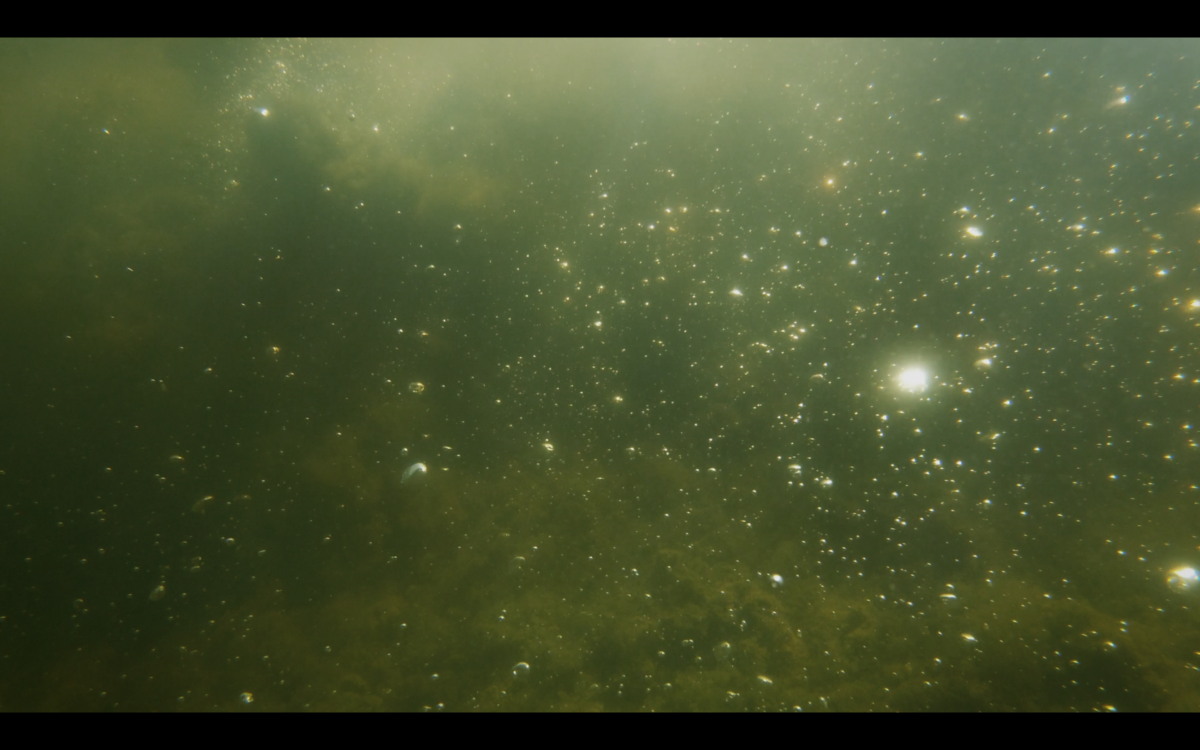
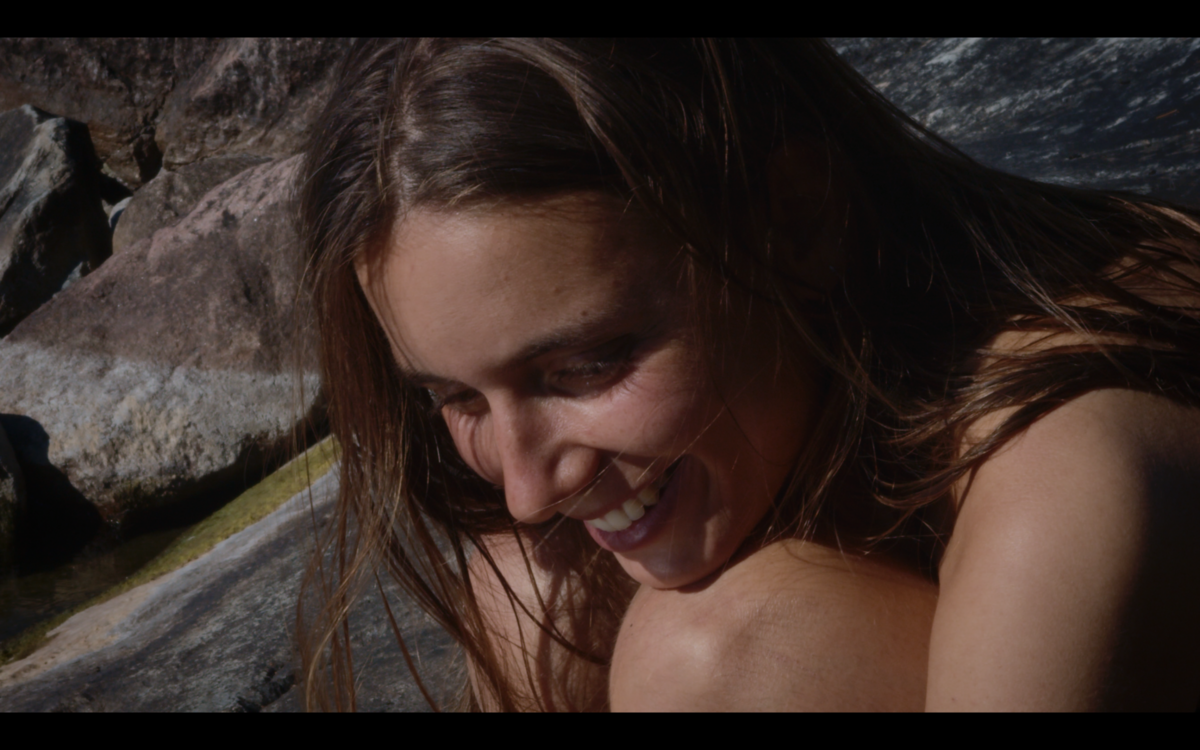
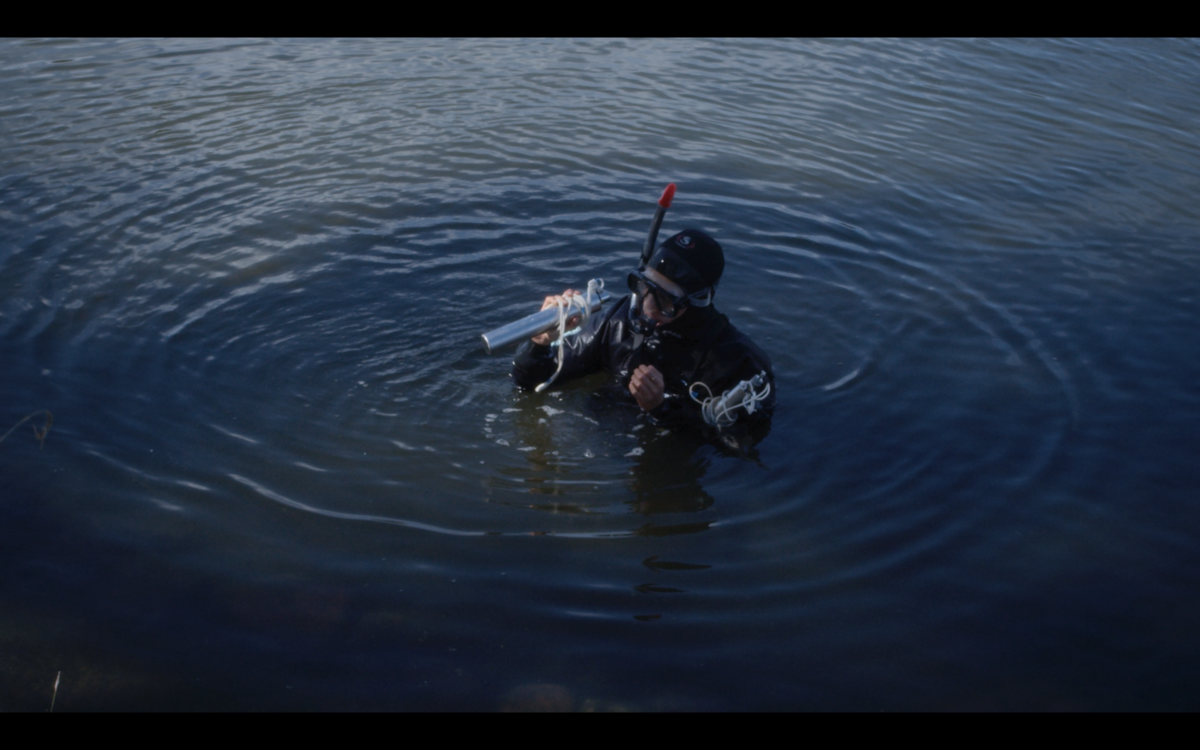
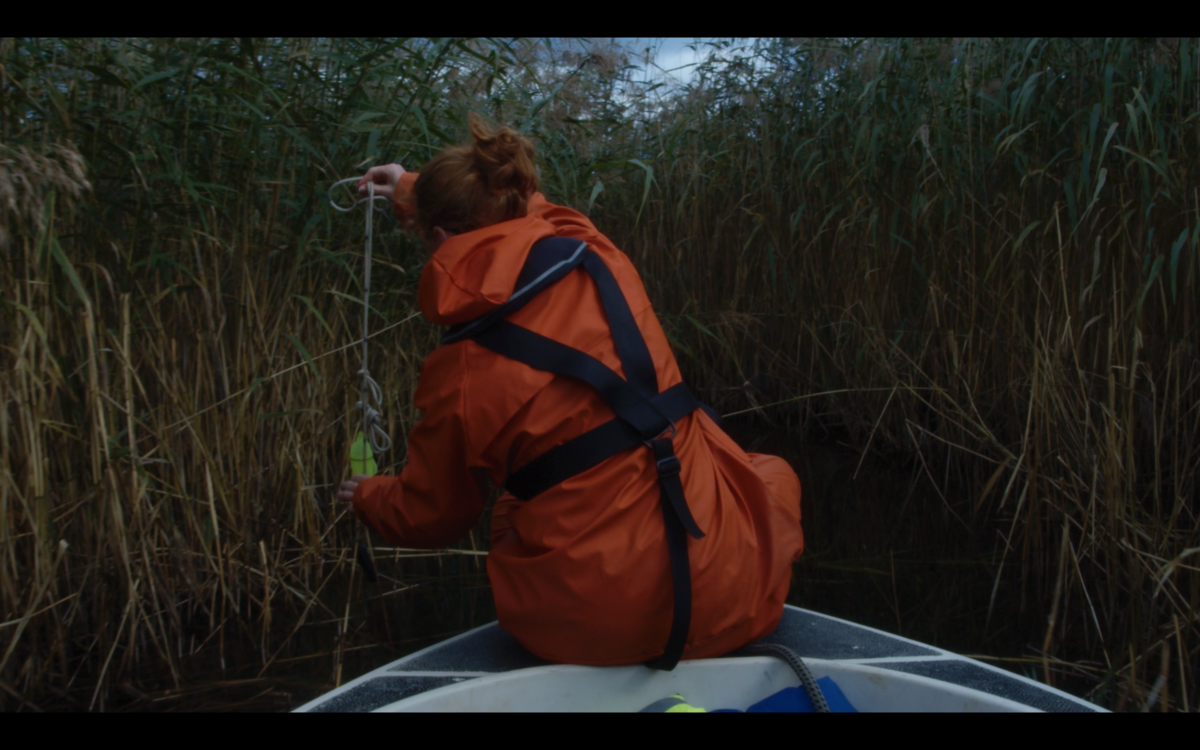
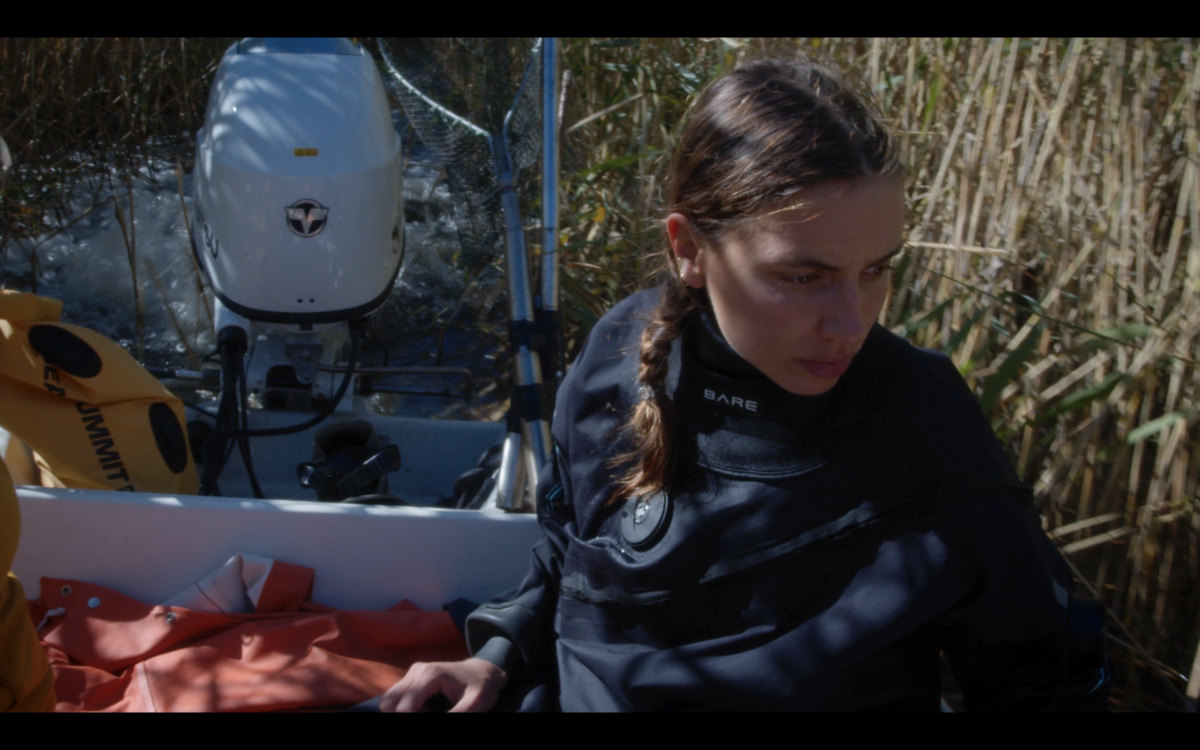
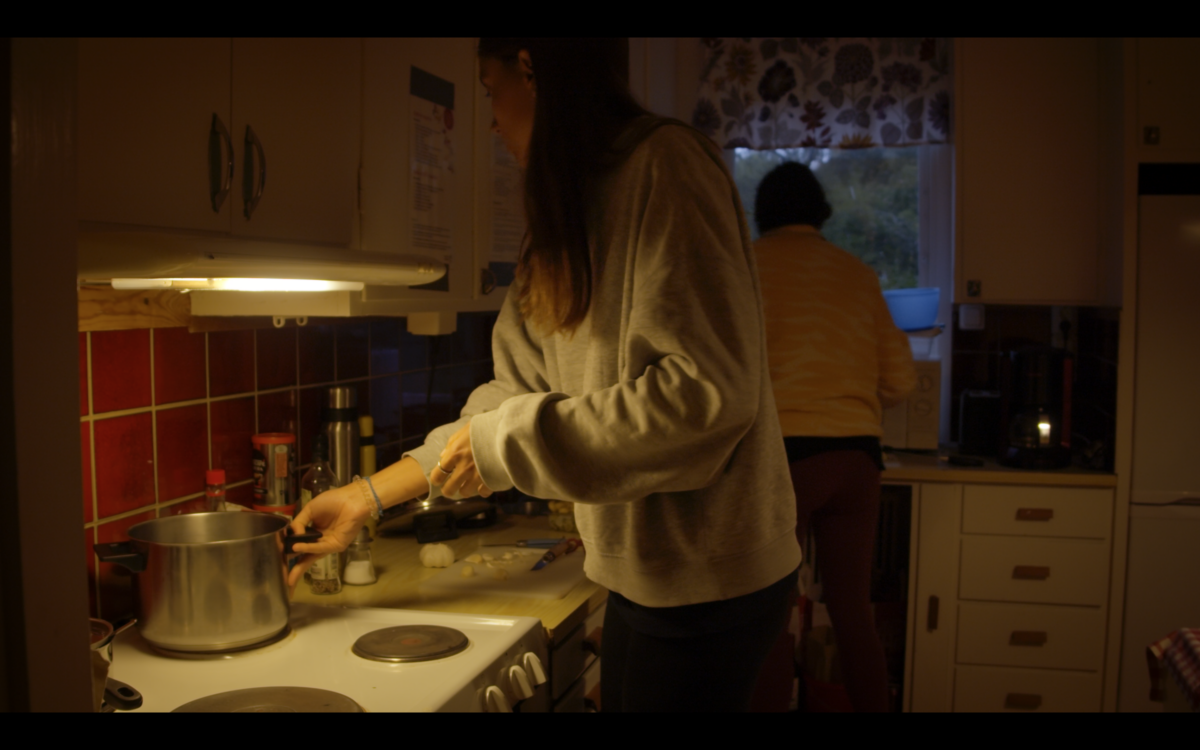
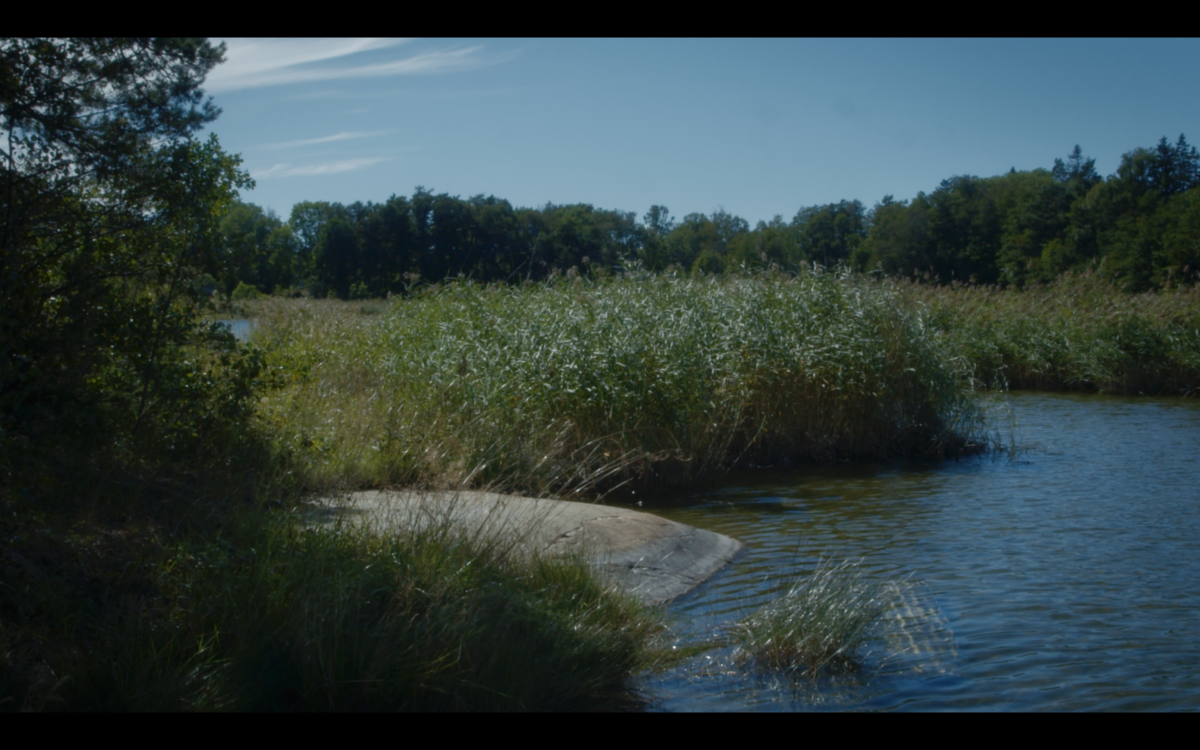
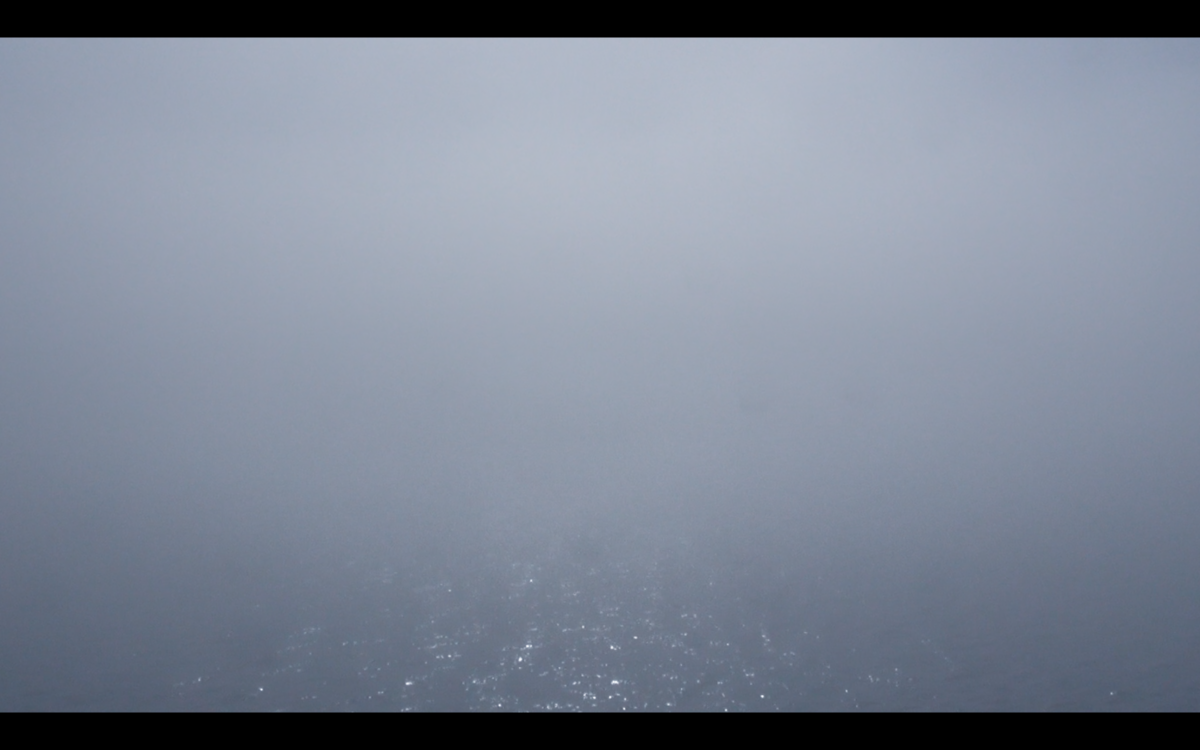
The film portrays the journey of India, a young marine biologist, and her profound connection with the sea. India’s character navigates confidence and murkiness, while conducting research on sediment clouds in the archipelago. We follow her daily routine as she snorkels in the shallow waters of the Baltic Sea: the mundane yet essential aspect of her actions is tangible, emphasising the relatable nature of the scientific fieldwork. Throughout the narrative, we can sense her self-development, delving into both personal and professional dimensions. India embodies a kind of amphibious existence, evolving between land and sea.
Director’s note + link to research:
For Amphibia, I was equally interested in developing the method of making the film, and in the film that resulted from it. Caring relationships become both a means and an end. I view documentary filmmaking as a means to foster learning exchange and collaboration across disciplines, reciprocally driven by curiosity and enthusiasm. My close relationship with India and the sea, and our mutual desire to collaborate inspired the project’s initial idea. Together and with the other collaborators along the way, we transformed this idea into a film.
The thesis Home Shores: Documentary Filmmaking and Fieldwork in Arts and Sciences in the Archipelago was developed along with the practice-based research of making the short film Amphibia. Home Shores explores the intersection of artistic and scientific research through the experience of documentary filmmaking and ecological fieldwork in the Baltic Sea archipelago. It extends beyond traditional film genres, emphasising the collaborative and relational nature of documentary filmmaking.
Amphibia – short documentary film, 26 min, 2024 (English subtitles)
with: India Findji, Betty Gubri, Joakim Hansen, Jonna Källås, Sofia Wikström at the Baltic Sea Center
direction, production cinematography: Cyane Findji
editing: Julia Matinniemi
sound editing: Simo Saukkola
mixing and original music: Yatoni Roy Cantu
colour: Miikka Pakarinen
graphics: Armando Tranquille
With the support of Aalto University and Finnish-Swedish Cultural Fund
Connected events:
Cyane Findji
Cyane Findji’s interdisciplinary practice involves using documentary filmmaking as a process-based methodology to investigate ways of bridging artistic and scientific research, and share ecological narratives that connect human-and-other bodies. Her latest short documentary film Amphibia (2024), tells the story of a young marine biologist who encounters her amphibious self while performing fieldwork in the shallow waters of the Baltic Sea Archipelago. As a duo with Myriam Gras, she is currently directing a short documentary film entitled Flowers of the Glacier (2025), which reflects on knowledge transmission and multispecies ecologies amid the melting glaciers of Arctic Sweden. She recently graduated with an MA in Visual Cultures, Curating and Contemporary Art from Aalto University (FI).
